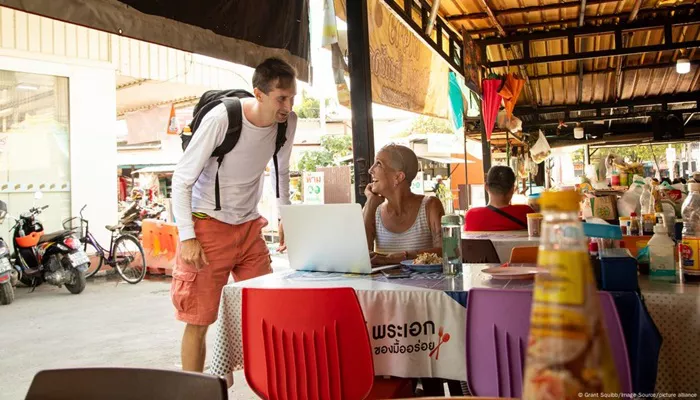Thailand Introduces New Visa Program to Attract Remote Workers.
Bangkok – Thailand has launched a new visa program aimed at attracting remote workers, freelancers, and digital nomads. The Destination Thailand Visa (DTV), introduced on July 15, 2024, allows eligible individuals to stay in the country for up to 180 days per entry and is valid for five years.
Naruchai Ninnad, deputy director-general of Thailand’s consular affairs, reported that approximately 1,200 DTV visas have been approved across 47 embassies and consulates. However, over 40 embassies have yet to report their visa numbers due to issues with the e-Visa system.
Visa Application Details
To apply for the DTV, applicants must be at least 20 years old and come from one of the 93 eligible countries. Required documents include a passport, proof of current residence, financial stability evidence, a recent salary slip, a foreign employment contract, a business license, and a professional portfolio.
The visa also accommodates those participating in Thailand’s “soft power” activities such as Muay Thai, cooking classes, and short-term education. The application fee is 10,000 Thai baht ($291, €260), and applicants must demonstrate financial stability with funds of approximately 500,000 baht ($14,500).
Addressing Concerns and Criticisms
While the new visa aims to address the issue of illegal remote work in Thailand, some concerns have been raised. Potential applicants worry that past visa overstays might affect their eligibility. Additionally, critics within Thailand argue that the visa could lead to increased rent prices and overcrowding.
Ninnad reassures that the application process for the DTV is stringent and similar to existing visa procedures. “The visa requirements are strict, and approvals are controlled. We do not have specific targets for DTV holders; it is similar to other visas,” he stated.
Impact on Thailand’s Economy
The introduction of the DTV comes as part of a broader trend of increasing remote work opportunities globally. Thailand’s move follows Estonia’s lead as the first country to offer a digital nomad visa in 2020. The COVID-19 pandemic has accelerated the shift to remote work, prompting many countries to create similar programs.
Tourism analyst Gary Bowerman notes that the DTV is designed to boost Thailand’s economy by attracting longer-staying visitors who spend more. “The aim is to encourage visitors to stay longer, travel more widely, and spend more across various locations,” Bowerman explained.
Thailand has also recently eased visa requirements for visitors from the 93 eligible countries, including Germany, extending stays from 30 to 60 days. This move is part of a strategy to diversify Thailand’s appeal and attract high-yield visitors while still appealing to the broader market.
Economic Context and Regional Competition
Facing an economic slump, Thailand is keen to increase tourism, which accounted for 11.5% of its GDP in 2019. The country welcomed 21 million visitors in 2024 and expects to reach 36 million by the end of the year.
Nithee Seeprae, deputy governor of marketing communications at Thailand’s tourism bureau, believes the DTV will encourage longer stays and more spending on activities. “This visa will extend the length of tourists’ stays and boost their spending,” Seeprae said.
As Thailand competes with its East and Southeast Asian neighbors, including Indonesia, Malaysia, and Japan, which have introduced their own digital nomad visas, Thailand’s new program aims to maintain its attractiveness as a destination for remote work and tourism.


